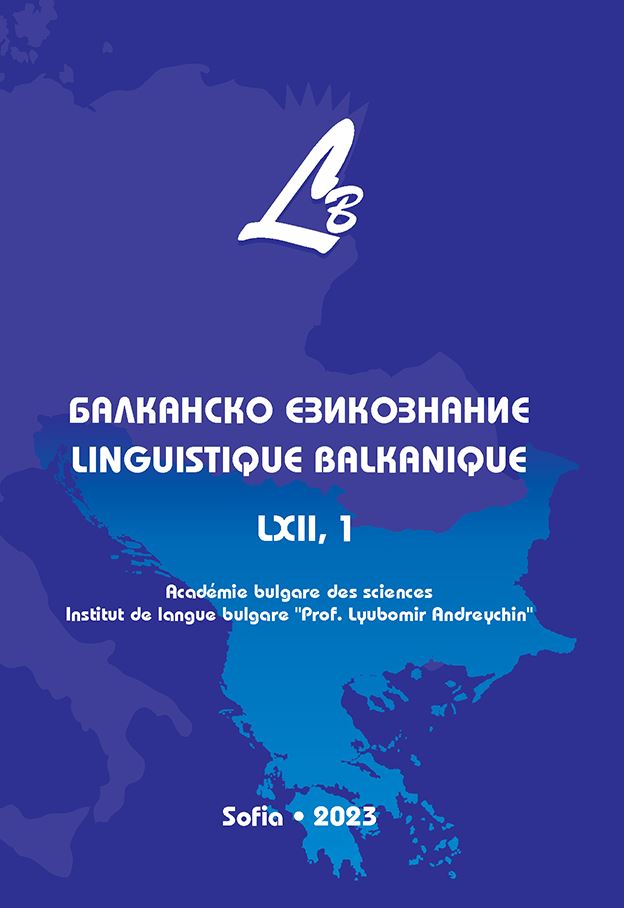British and American Visitors’ Approaches (1921-1939) to the Origin and Function of the Albanian Language
British and American Visitors’ Approaches (1921-1939) to the Origin and Function of the Albanian Language
Author(s): Benita StavreSubject(s): Language studies, Language and Literature Studies, Theoretical Linguistics, Lexis, Semantics, Historical Linguistics, Philology
Published by: Институт за български език „Проф. Любомир Андрейчин“, Българска академия на науките
Keywords: linguistic adaptions; Albanian language origin; literate translation; sociolinguistics; cross-cultural communication
Summary/Abstract: During the early decades of the twentieth century, foreign visitors to Albania noticed a lot of particular aspects of life that they found unique and worth publishing. They shared impressions, perceptions, research outcomes, emotional reactions, and facts about the way the Albanians managed their lives from 1921 to 1939. In the writings that constitute the literary corpus of this paper, the reader perceives an objective insight into the political, economic, social, historic, and ethnographic Albanian context while reading texts, diaries, newspaper articles, political reports, and research outcomes of the British and American authors who got to know the Albanian reality of this period. The relation between language and culture becomes especially significant when the mentalities of people encountering each other in a place are so different that respective linguistic means do not satisfy the linguistic gap that derives from the lack of awareness of the social phenomena they reflect. Such was the case when the British and American writers first needed to understand the Albanian social context and then convey it as closely as possible to a more international reader. However, since this reader had very little or no knowledge at all about Albanian life of the early twentieth century, there were also limited linguistic resources to express in English the treasure troves of Albanian social life hidden beneath the bjeshkë.* Most of the time, the writers seem aware of the fact that translating the word or defining it in the context would vanish most of its original meaning, so they chose to keep the Albanian word. One often finds such a word (in italics or boldface) in the middle of a page entirely written in English. They also chose to alter the phonological features of a word in order to create close pronunciation features between Albanian and English. They also sometimes chose to preserve the Albanian spelling of the word, but adapt its morphologic and syntactic features to integrate it into the English sentence structure. Such linguistic adaptions are as varied as the nature of Albanian words, their meaning, and social significance. The article aims to display the wide range of such linguistic reflections of Albanian life in the texts written in the English language, through phonological, spelling, grammatical, and semantic adaptions. It provides examples from authentic texts in English, classifies them according to the nature of the linguistic alterations, and explains the intertwining phenomena to reflect social particularities through language and culture.
Journal: Балканско езикознание / Linguistique balkanique
- Issue Year: 62/2023
- Issue No: 1
- Page Range: 50-65
- Page Count: 16
- Language: English
- Content File-PDF

